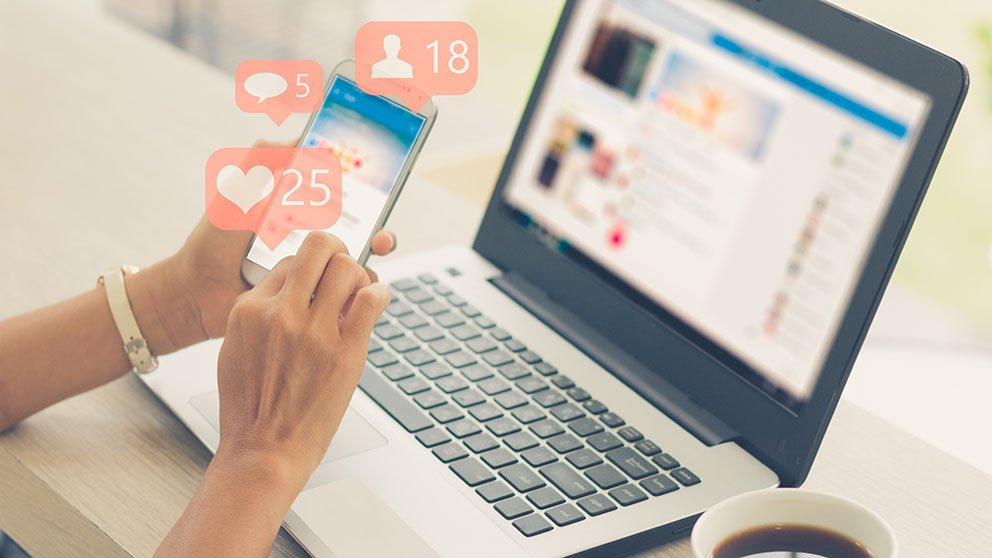Nearly everyone on the planet (in developed countries) has at least one social media account. It’s hard to find someone who doesn’t at least have a Facebook account, even if they only use it to stay connected with close friends and family. Medical professionals are no exception – like everyone else, they use social media to stay in touch and keep up with current events.
Unlike the average person, however, medical professionals who have a social media account are at risk for being stalked, harassed, and hacked by patients. Being targeted online is an unfortunate reality for many health professionals including medical doctors, surgeons, nurses, and mental health professionals.
This problem is so widespread, health professionals are encouraged (and sometimes required) to take continuing education courses online regarding the ethics of using social media. These courses cover the ethics of accepting friend requests from patients as well as sharing experiences with patients on social media.
Here are 4 reasons why it’s risky for medical professionals to have a social media account that is accessible to patients.
1. Infatuated patients can be dangerous
It’s hard to believe that a patient would become infatuated with their doctor to the extent of wanting to cause them harm, but it happens often. It starts off seemingly innocent. An infatuated patient uses social media like Twitter or Facebook to flirt or in an attempt to get their doctor to go out on a date.
According to The Guardian, a growing number of doctors seek help from the Medical Defence Union (MDU) after being bombarded with romantic advances online and through text messages. The MDU is an organization that advises doctors on their professional conduct with patients.
Many doctors who receive friend requests from patients don’t know if they should accept those requests. Unfortunately, accepting a friend request from a patient can put the doctor’s life at risk.
When anyone becomes infatuated with another person and they feel rejected, it can escalate quickly. Some people don’t take rejection lightly, and infatuation can quickly turn into stalking.
If you’ve ever watched the news, you’ve seen at least one report about a stalker who seriously injured or killed the person they were infatuated with. Medical professionals should never take that risk.
2. Maintaining clear and strict professional boundaries is critical
Doctors, nurses, psychologists, psychiatrists, dentists, and other health professionals are trained to maintain professional conduct with patients at all times. While there are no specific rules prohibiting health professionals from communicating with patients online, it’s a questionable move.
In order to maintain strict, professional boundaries, it’s imperative that medical professionals avoid getting involved in their patients’ personal lives for any reason. There might be exceptions to the rule when patients and doctors end up forming alliances or business partnerships based on a shared passion or interest, but those exceptions are rare.
3. Just having a social media account can be a problem
If a medical professional has a social media account in their real name, but they block or ignore patient friend requests, it could frustrate mentally unstable patients. It’s better to be completely invisible than to be visible and unavailable.
The problem with having a social media account is that it invites patients to start stalking their doctor online. They might start by flipping through photos, read posts, and see who they’re friends with. Unfortunately, this can make some patients become even more infatuated and obsessed.
It’s not enough to have a restricted profile, either. As long as an infatuated patient knows where to find their healthcare professional on social media, they’ll try everything to make contact and become frustrated when they can’t make their advances.
4. Once contact is established, it’s hard to end communications
Once a medical professional starts to communicate with patients over social media, it’s difficult to end that communication without consequence. For example, the communications may start out casually innocent, but if they turn into romantic advances from the patient that get rejected, the only option is to stop communicating and block the patient. Blocking an infatuated person on social media can turn into a disaster.
Since there’s no way to tell which patients will become threatening or violent when rejected, the only way to prevent the problem is for medical professionals to not accept messages or friend requests from patients.
If you’re a medical professional, use a pseudonym
If you’re a medical professional who needs to use social media, use a pseudonym and refrain from posting photos and personal information that may identify you through your contacts. It’s the only way to maintain your privacy and safety.

Leave a Reply